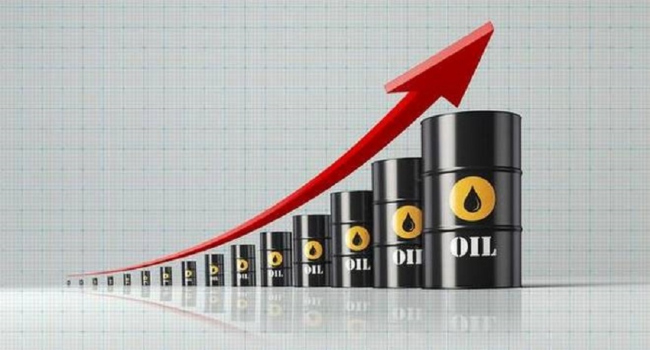Oil prices climbed moderately on Monday as markets responded to eased trade tensions between the United States and the European Union, coupled with ongoing diplomatic efforts to avert further tariff escalations. A weekend agreement setting a 15% import tariff on most EU goods — half the rate initially proposed — delivered temporary relief to energy traders concerned about the economic drag of prolonged trade disputes.
By 7:00 AM West Africa Time, Brent crude futures rose 0.89% to $69.05 per barrel, while U.S. West Texas Intermediate (WTI) crude gained 0.91% to $65.75. The upward swing followed Friday’s three-week low, driven by fears of renewed global trade instability and potential oil supply increases from Venezuela. Analysts noted that the U.S.-EU pact, covering nearly one-third of worldwide trade, reduced risks of fuel demand erosion from protracted economic strain.
Further optimism stemmed from a planned meeting in Stockholm between U.S. and Chinese officials, aiming to extend a tariff ceasefire ahead of an August 12 deadline. While no immediate resolution emerged, the dialogue underscored efforts to prevent additional levies that could destabilize energy markets.
However, price gains remained muted as attention turned to supply dynamics. A monitoring committee of OPEC+ — the alliance led by Saudi Arabia and Russia — convened Monday to assess production levels. Four delegates indicated the group was unlikely to adjust plans for eight member nations to boost output by 548,000 barrels per day (bpd) in August.
Dutch bank ING projected OPEC+ would fully reinstate 2.2 million bpd of voluntary supply cuts by September’s end, translating to a 280,000 bpd increase next month. The group seeks to reclaim market share amid summer-driven demand, which analysts say is absorbing incremental supply. JP Morgan reported a 600,000 bpd year-on-year jump in July global oil consumption, though inventories simultaneously grew by 1.6 million bpd.
Market watchers remain cautious, balancing relief over temporary trade de-escalation against longer-term questions about OPEC+ strategy and the resilience of demand. The muted price response to Monday’s developments reflects persistent uncertainties shaping energy markets, with traders weighing geopolitical maneuvers against tangible shifts in production and consumption.
